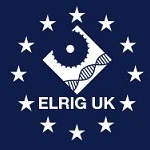Authors
J White1; B Durham1; F Chowdhury1; A Ganguli1;
1 Charles River Laboratories, UK
Abstract
CD73 is an immuno-oncology drug target of significant interest based on its key role in the generation of immunosuppressive Adenosine within the tumour microenvironment. Adenosine suppresses T-cell functions including cancer cell killing. By targeting the CD73 enzyme which converts AMP to Adenosine, T-cell function can be restored. Alternatively the conversion of ATP to AMP can be targeted by inhibiting the enzyme CD39. Both CD39 and CD73 are widely expressed on immune cell types, including cytotoxic CD8+ T-cells depending on activation status.
Compounds which inhibit CD73 are described in the literature, including two molecules which entered phase 1 clinical trials: AB-680 and LY-3475070. Earlier molecules are AMPCP and the derivative with improved properties PSB-12379.
We show a 96-well FACS assay for testing the restorative effects of CD73 inhibitor compounds on T-cell activation. The main readout is proliferation by dye dilution method using the covalent dye CFSE. Alternative readouts of T-cell activation tested were upregulation of CD25 surface expression and release of Interferon gamma into culture medium.

